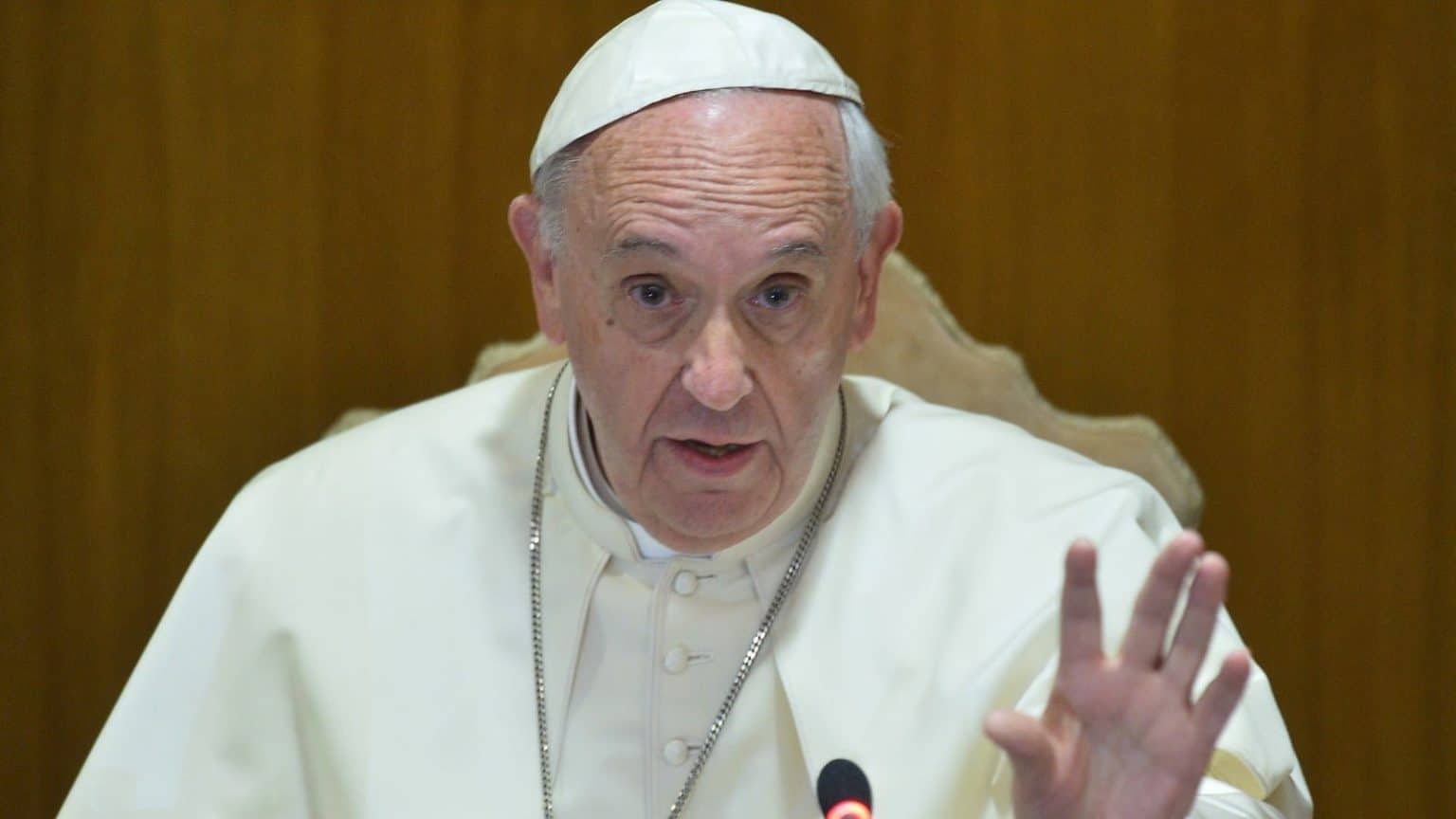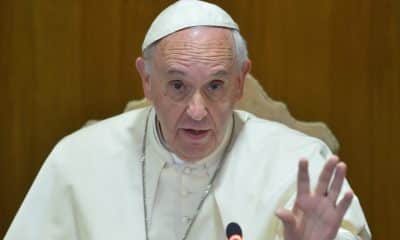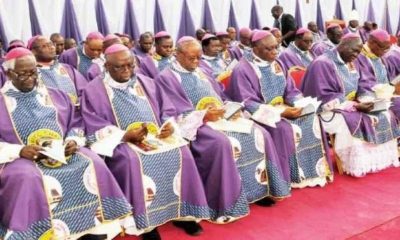Gist
Pope Francis Empowers Catholic Priests To Bless Same-Sex Couples Under Certain Conditions

The Vatican has issued a groundbreaking decree permitting Roman Catholic priests to bestow blessings upon same-sex couples in specific situations.
In a landmark ruling approved by Pope Francis on Monday, the Vatican’s doctrinal office outlined that Catholic priests can administer blessings to same-sex couples, as long as these blessings do not form part of routine Church rituals or liturgies. Additionally, these blessings should not be conducted within the framework of civil unions or weddings.
According to the document from the Vatican, the approval of such blessings is not intended to legitimise irregular situations but rather to serve as a symbolic gesture indicating that God welcomes all individuals, regardless of their sexual orientation.
The document backed “the possibility of blessings for couples in irregular situations and for couples of the same sex”, but “this blessing should never be imparted in concurrence with the ceremonies of a civil union, and not even in connection with them”.
It said priests should decide on a case-by-case basis and “should not prevent or prohibit the Church’s closeness to people in every situation in which they might seek God’s help through a simple blessing“.
The document expands on a letter sent by Francis to two conservative cardinals, which was published in October. In that initial response, Francis indicated that blessings for same-sex couples might be permissible under specific conditions, provided they did not blur the distinction between the ritual and the sacrament of marriage.
The newly released document reiterates this reasoning and provides further clarification. It underscores that marriage remains a lifelong sacrament between a man and a woman. Emphasising that blessings should not coincide with civil unions, established rituals, or incorporate attire and gestures associated with weddings.
While maintaining these boundaries, the document advocates against an outright denial of requests for such blessings. It presents a comprehensive definition of the term “blessing” in Scripture, asserting that individuals seeking a transcendent connection with God, along with His love and mercy, should not be subjected to “an exhaustive moral analysis” as a prerequisite for receiving it.
“Ultimately, a blessing offers people a means to increase their trust in God,” the document said. “The request for a blessing, thus, expresses and nurtures openness to the transcendence, mercy, and closeness to God in a thousand concrete circumstances of life, which is no small thing in the world in which we live.”
The Vatican staunchly upholds the belief that marriage constitutes an indissoluble union between a man and a woman, leading to its historical opposition to same-sex marriage.
In 2021, the Congregation for the Doctrine of the Faith, representing the Vatican, explicitly stated that the church could not bless unions between two men or two women, asserting that “God cannot bless sin.”
This declaration triggered widespread criticism, catching even Pope Francis off guard, although he had technically approved its release. Subsequently, he took swift action by removing the official responsible for the document and initiating steps toward a reversal of the stance.
While emphasising that individuals in “irregular” unions, irrespective of sexual orientation, are considered to be in a state of sin, the document asserted that this should not preclude them from receiving God’s love and mercy.
Pope Francis has recently denounced laws criminalising homosexuality as “unjust,” affirming that God loves all his children as they are. He urged Catholic bishops supporting such laws to embrace LGBTQ individuals within the church.
In 2008, the Vatican declined to endorse a UN declaration advocating for the decriminalisation of homosexuality. The Vatican cited concerns that the text exceeded its original scope and included problematic language related to “sexual orientation” and “gender identity.”




